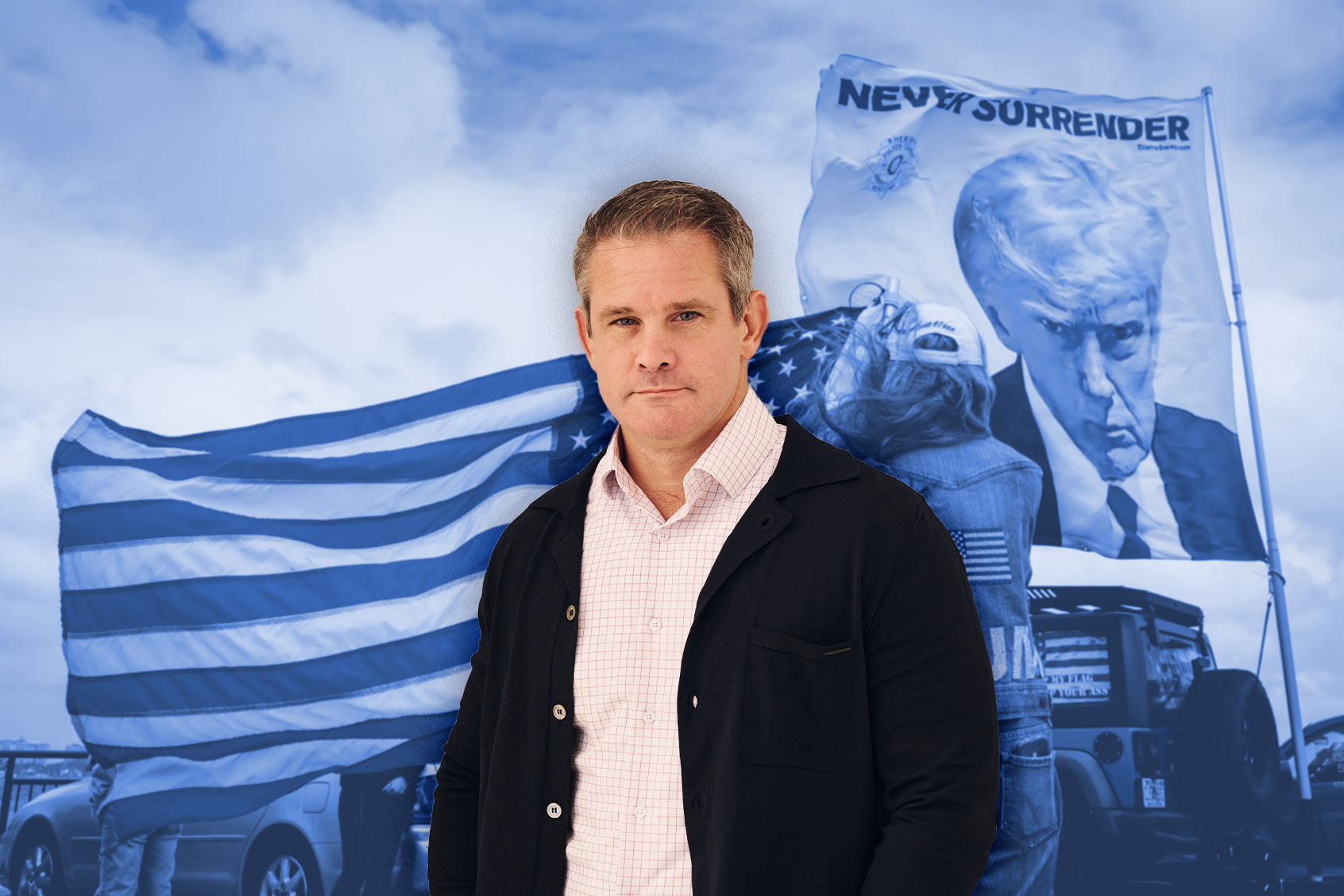Number Six
Нет, спасибо

“There is no morality right now”: Former Rep. Adam Kinzinger on Donald Trump's GOP - Salon.com
Former Illinois congressman who turned on Trump after Jan. 6 stars in new documentary "The Last Republican"
If I don't need to tell you who Adam Kinzinger is — well, first of all, you might be a bit of a political nerd. That probably also means you saw his star turn as one of two Republican members of the House committee that investigated the Jan. 6 insurrection, in what now feels like a long time ago in a galaxy far, far away.
Kinzinger was a six-term Republican congressman from Illinois and, by any reasonable measure, a staunch conservative who supported Donald Trump's agenda during his first term more than 90 percent of the time. But after Jan. 6, 2021, Kinzinger belonged to a small and dwindling number of GOP members of Congress who turned on Trump and never recanted. He voted to impeach Trump (who had already left office, however reluctantly) and then voted to create the select committee that held a series of dramatic hearings throughout 2022.
Kinzinger tells director Steve Pink in the new documentary "The Last Republican" that he hoped then-Speaker Nancy Pelosi wouldn't ask him to serve on the committee. In fact, that question was never asked: Pelosi called to tell Kinzinger he'd been appointed, probably understanding that as the ultimate all-American straight arrow — a former Air Force lieutenant colonel who earned six medals for combat service in Iraq and Afghanistan — he wouldn't say no. Unlike the only other Republican member of that panel, Rep. Liz Cheney of Wyoming, Kinzinger grasped the consequences right away: His political career was over.
Related
"They should go to jail": Trump says Cheney should be investigated over Jan. 6 committee
Kinzinger didn't run for re-election in 2022, and wouldn't have been eligible for the Republican Party's endorsement if he had. As "The Last Republican" details, he and Cheney were both censured by the party and effectively expelled; on a personal level, many of Kinzinger's former colleagues, friends and extended family members no longer speak to him. As Pink's overly ironic title suggests, Kinzinger finds himself in a lonely place that, depending on your perspective, is either, noble, pathetic or ridiculous. While the irony of Pink's title is arguably heavy-handed, Kinzinger really does see himself as one of the few genuine standard-bearers for Reagan-era conservatism, forced to ally himself — very likely for the rest of his life — with a fractured, disunited and defeated opposition, most of whose policies he does not support.
To be clear, that last clause refers to the Democrats. I met Adam Kinzinger in Salon's New York studio about two weeks after Donald Trump won the presidential election, an outcome he had labored to prevent. I liked him immensely. He agreed to make this movie because Pink had directed "Hot Tub Time Machine," and let's be honest — that's the sort of connection that can transcend disagreements about any number of allegedly substantive issues. It's a profound cliché to describe someone of a different political or religious persuasion as "decent," but I can't avoid it: This lifelong true believer in the values of American right-wing politics, struck me as both decent and kind.
His mood seemed upbeat and cheerful, which served to remind me that the second coming of Trump is not actually the apocalypse. In occupations like politics, war and journalism, that attitude is helpful: You take a beating and learn things about fate, popular opinion and your opponents that you didn't know before. As long as you're still alive and there's something to fight for, you get out of bed the next day and get back after it. Kinzinger's problem now will be figuring out what "it" entails: He's 46 years old, and would be relatively early in his political career if he still had one.
What follows is a transcript of our conversation, lightly edited for clarity and length.
Many of the people who watch this documentary will not agree with you on a lot of political questions, but they're going to like you a lot anyway. You made a lot of new friends by standing up to Donald Trump — and lost a lot of your old ones.
Yeah, that happens. One of the great things about it is that the director [Steve Pink] is to the far left of me. I would consider myself kind of center-right, but what we show is you can be friends with somebody you disagree with. One of the things I say is you don't need to be friends with an insurrectionist. There's a fine line here, but somebody that has a different view of government — honestly, it makes life kind of entertaining if you can have those kinds of spirited discussions.
My last four or five years have been marked with losing some family members. More extended family — my close family has been good. Losing, certainly, a lot of friends, people I fought with in Iraq. And making some new friends too along the way.
Right. This conversation shouldn't be about Adam Kinzinger's personal pain, and that's not what the film is about either. But It's obvious this has been a very difficult period for you. It has to be difficult right now in a brand new way, given what happened in the presidential election.
It's very tough because I, like a lot of people, was convinced that, no way the country can do this again. Despite the polls, which obviously showed it was close, I really believed they were under-sampling Harris voters. It's been pretty hard to watch the country do this again, to know what I know, and frankly what everybody knows about Jan. 6, and to see, by and large, the country make a decision that that doesn't matter. We've been so driven by this fear and division that somebody like Donald Trump puts out that it compelled a victory. I have a lot of concerns, but I've pretty much shed all of my friends that were going to let me go because of what I believed anyway, so there haven't been any new broken relationships. It's sad to see what the country's going to go through for four years.
I have to assume that going back to 2021, when you decisively turned against Trump, you could never have imagined him coming back to power.
Right after Jan. 6, a guy named Fred Upton, a congressman from Michigan, told me, "You know Trump's going to run again." I'm like, "Fred, that's BS. Come on, man. Let's be serious here." He goes, "No, he is." He not only ran again, he won the Republican primary handily and then he fricking wins the presidency.
"The problem is that we're a country that has suffered from a lack of leadership to remind people of the importance of democracy."
No, I never saw this coming. In fact, I assumed, like, I think, most Americans, that after the Jan. 6 committee exposed what Donald Trump himself had a hand in, that the country would be like, "Yeah, we can't do that again, because democracy really is fragile." That's the thing that I try to remind people, but here we are. It's tough to watch.
You and the other members of that committee spent so much time and effort into exposing everything that happened. It was a remarkable investigation, a landmark in American history. And now it feels like the whole nation has repressed it, has refused to acknowledge how bad it was.
Yeah, it does feel like it. Look at the media environment, particularly the news environment. Half of the news media tells the truth about what happened on Jan. 6, and the other half is incentivized to suppress it. When I spoke to the Democratic National Convention, to give you an example, Fox News tuned away from my speech, from Jeff Duncan's speech, and from Olivia Troy's speech. Every Republican who spoke at the DNC, they turned away from.



